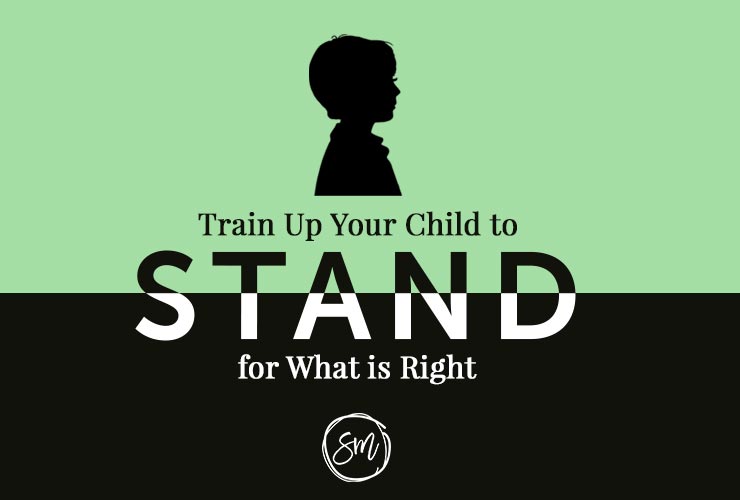Proverbs says, “Train up a child in the way he should go, and when he is old he will not depart from it.” As my children have grown up, we have had many discussions about doing the right thing. Many times they were asked by a teacher or coach to do something that was wrong. They had to really think and apply their training to the situation so that they did not depart from what they knew was right. Even if it meant getting a lower grade or being benched in a game.
It’s not easy to speak up in your freshman ethics class and say that abortion is wrong when everyone else in the class accuses you of being anti-feminist. It’s not easy to sit alone in your dorm on a Friday night because your underage friends are partying and getting drunk. It’s not easy saying no to sex with a boyfriend who you think you are in love with and who insists that’s the only way to prove that you love him. It’s not easy seeing someone cheat on an exam you studied all night for and then finding out they got a better grade than you. It’s not easy to do the right thing—but it is worth it. Here is how to train up a child to stand for what is right.
To aid discussion, we used a filter with 3 levels: Level 1—Is it against the law? Level 2—Is it against our personal convictions? Level 3—Is it against a higher law that we adhere to? I know this is a long post but I added a lot of examples because these conversations are, well, complicated.
Level 1: Is it the law? (lowest filter)
If it is the law, it is right to keep the law and wrong to break the law. Period. This is the country we live in and we must abide by the rules.
Example: Drugs are illegal and for good reason; therefore, it is wrong to break the law and take drugs.
A potential problem with this level is that laws change. Four years ago, one of my sons was tempted to smoke marijuana with his buddies. I found out about it and we had many discussions. At the time, it was illegal or so I thought, but he proved me wrong. Marijuana had just been legalized in Colorado. And more states were in the process of legalizing it. According to the changed law, smoking marijuana is not wrong. But is it? We had to move our discussion on to level 2.
Level 2: Is it against our personal conviction? (higher filter than the law)
If it is counter to what your family believes is right for you or fair to others, then it is wrong.
Example: Pushing other children is not illegal; however, it is harmful and, therefore, wrong so our family doesn’t push.
Example: Lying or cheating is not illegal, but it creates relational distrust (among other things) and, therefore, it is wrong.
Example: Marijuana may be legal, but it is counterproductive to having a sharp, healthy mind which good students need and, therefore, our family doesn’t do it because it is wrong.
After my son proved me wrong at the level 1 filter of the law, we began to look at marijuana studies. The evidence is clear that marijuana negatively affects the brain and impacts behavior. My son became personally convicted that it was wrong for him and his future success and chose not to smoke. Smoking marijuana is against our families personal conviction, therefore, it is wrong for us.
Level 3: Is it counter to a higher law, such as God’s law? (most stringent filter)
Example: It is legal to be selfish, slanderous and envious, but it grieves God when we do these things, therefore, it is wrong for our family.
Example: It is legal to have sexual partners outside of marriage; however, it is considered adultery in God’s eyes and because we believe in God, it is wrong for us.
These 3 levels help us to unravel the complexities of right and wrong, but it takes a lot of conversation too. Many kids, especially at the high school and college level, have no filter. Right is whatever they want at the moment. And, if you see enough of “wrong” going on around you, you can start to think it’s not so wrong and maybe it’s even okay.
We have to stay in the game of teaching our kids to discern right versus wrong. We have to explain to them that the right answer may not be popular, but that’s okay. We have to prepare them for the reality that doing the right thing does not always lead to prosperity and fun. They have to know the truth about what they believe and why.





